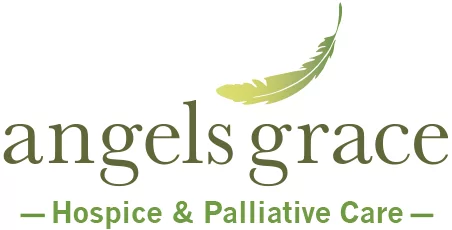It’s never easy to determine if Alzheimer’s end-of-life care is needed. Alzheimer’s affects the entire family unit. Many families feel isolated and defeated in caring for their loved ones with any form of dementia. But it doesn’t have to feel that way. Electing hospice care for dementia does not mean you’re giving in or giving up.
Making difficult end-of-life decisions for a person with dementia and Alzheimer’s disease
Generally, one of the very first clinical personnel to make contact with families considering hospice care is the Admission Nurse. They typically find much education is needed, and required. Most of the challenging obstacles that the admission clinical team come across is that many family members think that when making a decision to elect hospice are giving up on their loved one. In fact, they are doing the very opposite, especially during the horrendous pandemic of COVID 19 in 2020. With social isolation that is affecting the geriatric community in assisted living facilities, and skilled facilities, along with home patients, etc. hospice can provide extra care and visits to your loved one.
Your loved one will do better from the engagement of skilled nurses, home health aides, psychosocial support, and chaplain support. We, as a hospice team, are allowed in facilities and able to deliver the one on one specialized care to the patient. We as a hospice team are able to provide the 1:1 personalized tender loving care that an Alzheimer/dementia patient needs. Our team acts as a liaison between the patient, family, physician, and facility. The hospice team can help coordinate and determine a particular medical plan of care that suits the patient, and change it as needed.
The social engagement with the patient will provide the companionship to help cheer them up, often allowing the hospice team to help them with participation in activities. This is how the hospice team helps meet the needs, and is able to provide support of the family.
“As an admission nurse, I meet with potential families seeking hospice care. It’s a wonderful conversation, because we act as the eyes and ears for their loved one. We are able to prevent those unnecessary hospitalizations for a suspected urinary infections, pneumonia, falls, etc. As the hospice team we manage the symptoms such as increased confusion, falls, pain, anxiety, agitation fever, cough, etc. That may come with the disease process. Before, they cause a problem and avoid hospitalization. Many dementia patients become increasingly confused, and agitated with any hospitalization. Hospice care will further prevent hospitalizations, as we focus on comfort, dignity, and quality of life. Patient centered care is of the utmost importance with hospice. The beauty of hospice is the clinical team is available 24/7 to the family, facility, etc. with any questions, concerns, and changes in condition of the patient.”
Angels Grace Hospice & Palliative Care provides a customized care plan to meet the specific needs of patients. We provide comfort care in your home, hospital, nursing home or assisted-living facility depending on your individual circumstances.
Contact us with any questions and for further assistance with your end of life care options.
Teepa Snow Philosophy
Dementia Care and Training Specialist Teepa Snow joins Senior Helpers to teach you important phrases to learn when caring for someone with Alzheimer’s and dementia.
Teepa Snow’s philosophy and education is reflective of her life-long journey professionally caring and supporting people living with various forms of dementia. Positive Approach to Care (PAC) is a person-centered approach evolved to meet the complex and unique needs of individuals using effective and structured techniques. Utilizing PAC helps our families, patients, and partners better understand how to care for a loved one. There are positive ways to approach individuals living in different stages of dementia without causing increased confusion, helplessness, and fear.
An Approved PAC Coach displays:
- Ability to grow personal skills and knowledge of Positive Physical Approach™ (PPA™) related to learners and those living with dementia
- Ability to adapt PPA™ to meet the needs of others
- Willingness to make mistakes, admit them, and learn from them
- Self-awareness as well as self-assurance
- Emotional intelligence
- Ability to recognize GEMS® states and willingness to assist at any level
- Ability to authentically apologize for situations in which someone perceives you to be at fault
- Equal commitment to process and product
- Agenda awareness and agenda flexibility
- Ability to find balance between encouragement and holding people accountable


